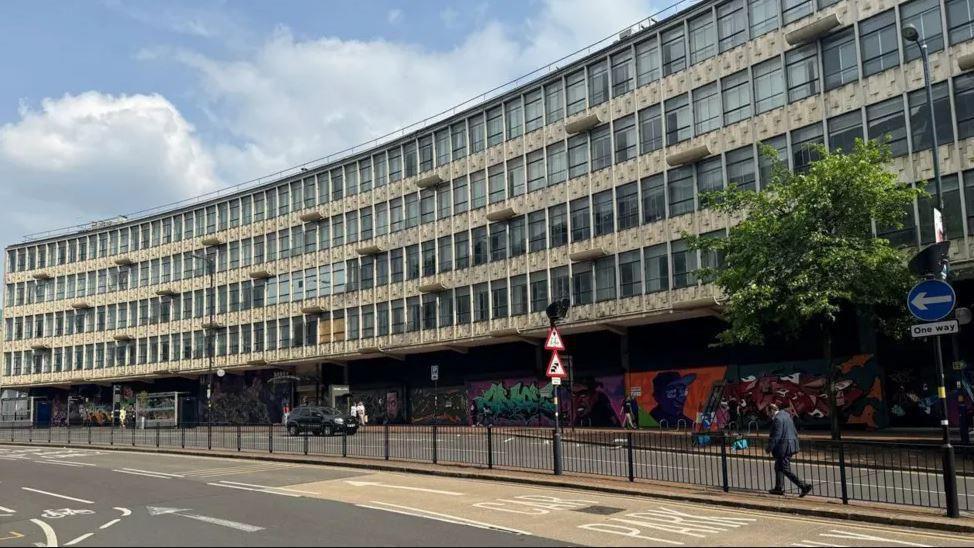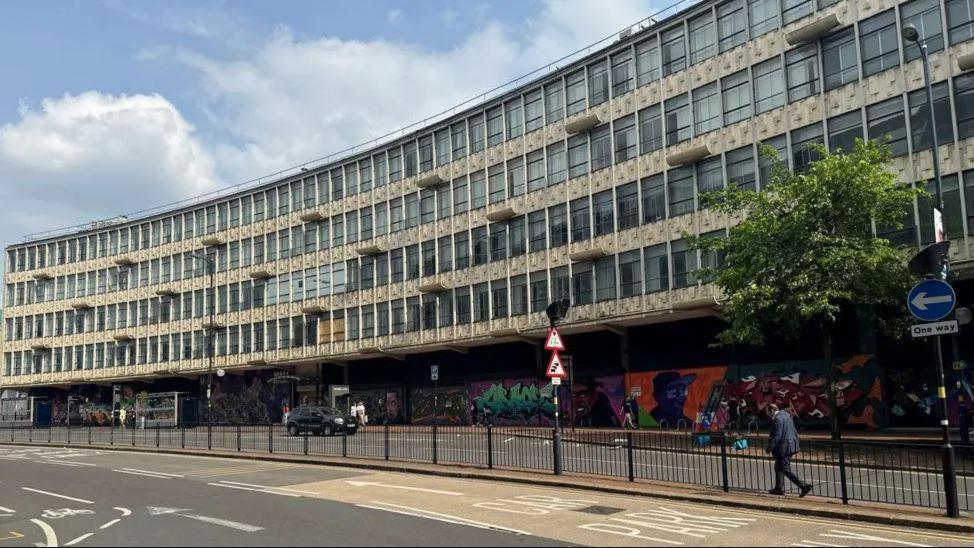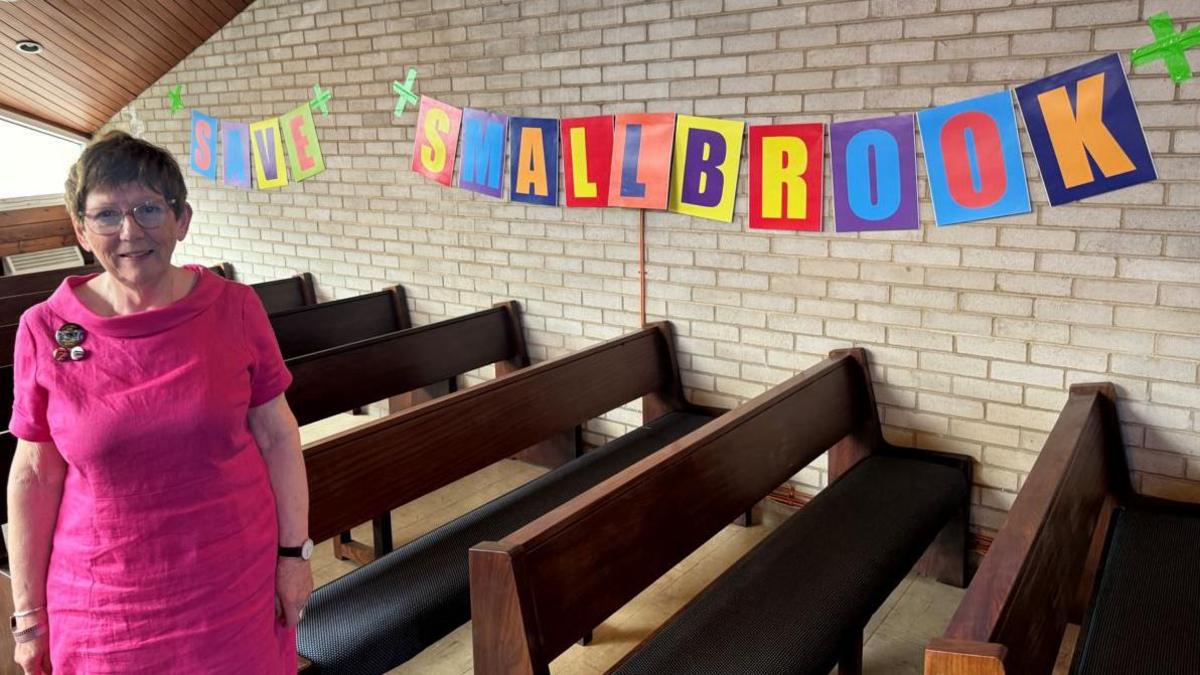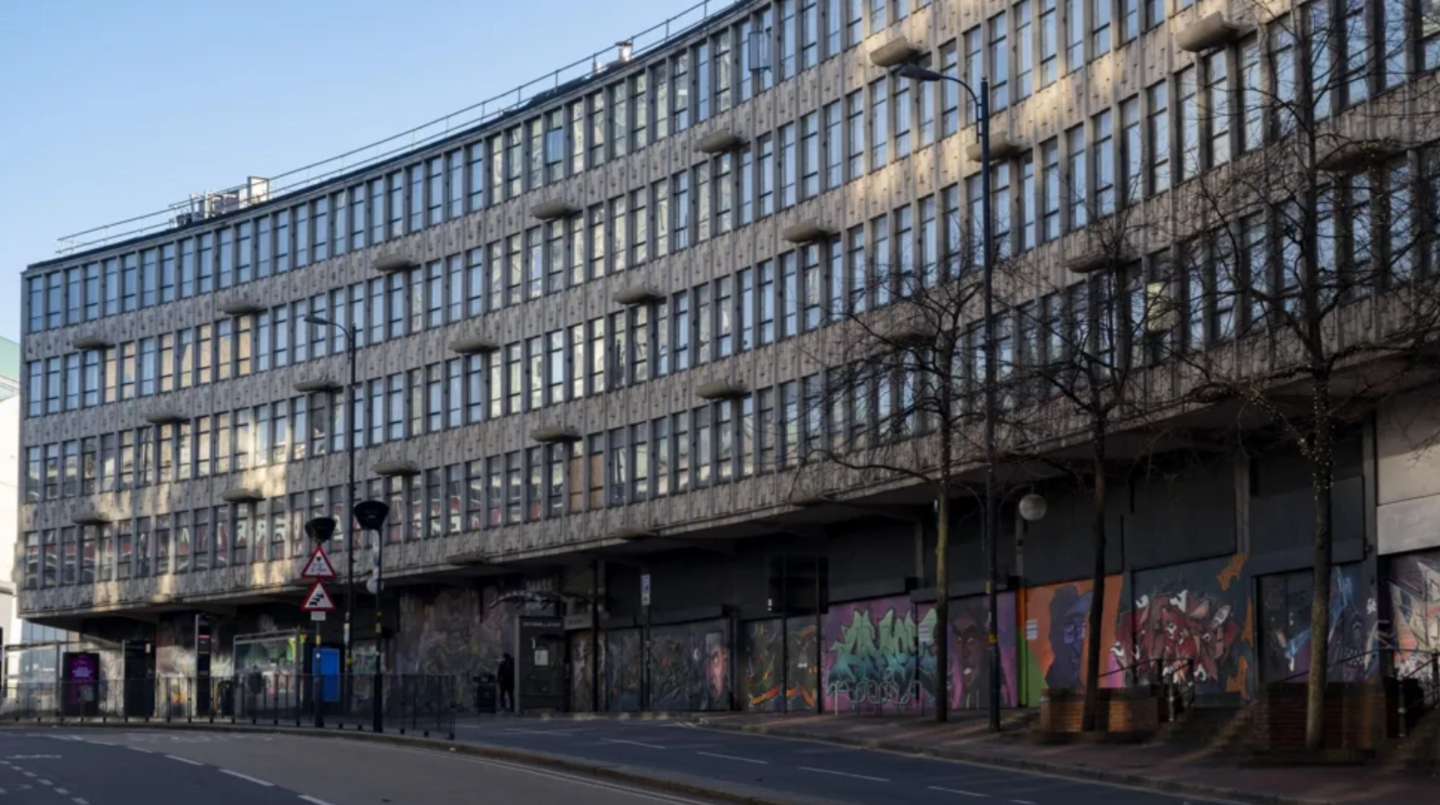Vow to continue fight to preserve Brutalist Brum

Save Smallbrook wants the Ringway Centre to be repurposed not knocked down
- Published
A group of campaigners have vowed to continue their fight to preserve a distinctive 1960s office building after the High Court refused permission for a judicial review of redevelopment plans.
Save Smallbrook wants to stop the Ringway Centre, on Smallbrook Queensway in the heart of Birmingham, from being knocked down to make way for three residential apartment blocks.
Following the court's stance, the coalition said it was deciding whether to ask for a reconsideration at an oral hearing.
Birmingham councillors voted for the demolition in February, and developers said the scheme would provide new public spaces to "revitalise the area" and attract new visitors.
Under the approved plans, a minimum of 15% of homes would be allocated as affordable housing.
Save Smallbrook described the High Court decision as "frustrating".
"We wanted to take a moment to reflect on the gravity of this campaign, and the importance of continuing the fight," said Mary Keating, on behalf of the group which is seeking to preserve an example of Birmingham's mid-20th Century Brutalist architecture.
"We have been overwhelmed by the groundswell of support, hearing from people who want to make a stand for their city, and for future generations."
The curved, six-storey office block was designed by James Roberts, known for creating The Rotunda on New Street in the city.
Save Smallbrook wants the building to be retained and also repurposed.
More than £6,500 has been donated to its crowdfunding campaign to pay for the legal challenge.
Follow BBC Birmingham on Facebook, external, X, external and Instagram. Send your story ideas to: newsonline.westmidlands@bbc.co.uk, external
Related topics
- Published16 June 2024

- Published13 May 2024

- Published10 May 2024
